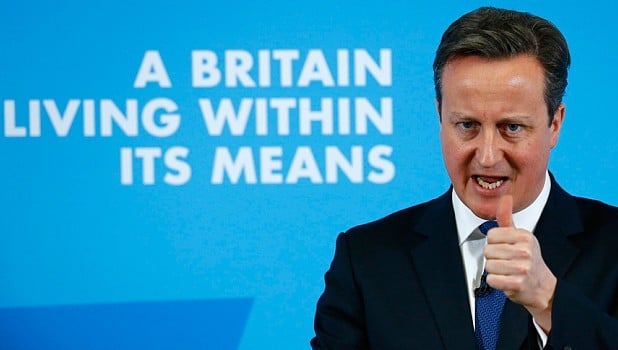
Social and moral repercussions of the Tory victory in UK

Dear all,
The mandate given by the British electorate to David Cameron’s Conservative Party is a source of great dismay to those of the view that the Tories are taking Britain farther and farther away from the Socialist ideas and values that guided the re-building of Britain after World War II.
Although the Conservatives in their previous term, governing through a coalition with the Liberal Democrats, put in place a number of unpopular and much derided reforms of the Welfare system as well as the National Health Service, the election results indicate that the electorate at large seemed to have been convinced by the Tory message of economic discipline and reducing debt.
The Tories’ message of avoiding debt and being economically responsible is obviously appealing because of its inherent tone of good sense and its rejection of any tendency to scrounge or be an economic parasite, and it is this good sense that was perhaps appealing to the British temperament.
But underlying such rhetoric was the idea that Britain must rid itself of subsidies to those classes of society considered unprofitable or unproductive. The country’s benefits system has been much criticised for bleeding money and for encouraging an underclass of people who prefer to claim benefits rather than work or earn their keep, and many felt that here reform was necessary.
The danger in this sort of reform is that you can fundamentally alter the very elements of care and compassion in society that were the basis for this sort of institutional policy. If everything is reduced to just the cost of everything in pounds and pence, you fail to see the cost of such change in terms of social harmony or co-existence.
Tory-phobics also have issues with changes to the National Health Service. Now that the Conservatives have a majority in the House of Commons, the expectation is that they will be able to execute a number of reform measures in the NHS. These reforms began during the coalition and mainly seem to be about outsourcing -- linking private services to the NHS.
So why should one be opposed to such outsourcing? Basically because this process affects the holistic nature of the health service and also introduces the profit motive into the equation. Plus the whole outsourcing process involves the awarding of lucrative contracts, yet another way for the private sector to erode a public service.
Are Britain’s next five years going to be all about strengthening the economy and worshipping at the altar of Capitalism?
Whenever I raise this question, people immediately ask me if I would prefer to go back to the Britain where unions and strikes could disrupt everything and where the main public utilities were all state-owned. My answer is why does it have to be one or the other? Why can’t it be a better version of a socialist system?
My capitalist friends and compatriots cite economic indicators, investment levels and the stock exchange as determinants of progress, but I remain wary. Money and investments and Bankers’ bonuses are not the only determinants of a country’s prosperity -- they normally just indicate a certain elite group’s prosperity rather than tell the national story.
Moreover, all the wealth being generated by capitalist systems is not necessarily used to further invention, innovation and creativity in society -- it is used to perpetuate and strengthen the system of making money and ensure that those in this venture continue to profit from it.
In other words: money becomes both the means and the end, money is being raised in order to make more money.
That this is no longer worrying to most people is in itself an indicator of the triumph of the fat-cat capitalists. In a world that does not question such deep-seated, amoral practices, the power of money is intensified. Research, academic discourse, journalistic scrutiny -- all areas where objectivity and independence are crucial -- can be easily controlled through funding. Money has the power to shape the narrative and the discourse according to its own requirements.
And the fact that people now so unquestionably ‘follow the money’ indicates a pragmatic acceptance of the "greed is good, money is power" mantra of the Capitalist world.
I am one of those who mourn the end of the Welfare State in Britain. Chopping public services into lots of profit-making ventures is not going to profit society or improve the social outlook. The NHS will be in danger of being reduced to the health service of the most impoverished, and the welfare system might morph into an improved version of a Victorian Benevolent Society. My fear is that once this sort of change in attitude becomes institutionalised, Britain will return to a Dickensian scenario of poverty and despair -- for some people anyway.
Let’s hope Britain does not turn itself into a fractured, economically polarised society which, because of its economy and fiscal policy, is declared robust and healthy. That would be like saying a suffering, seriously-ill patient is doing well: the criterion being his bank balance not his actual health.
We really have forgotten that money is a means not an end. It’s something to utilise not something to pledge your existence to…
Best wishes